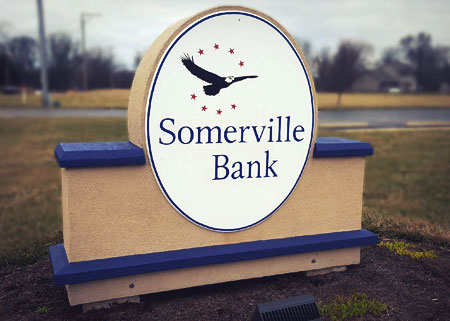How to Avoid Becoming the Target of Digital Thieves: An Online Fraud Guide for Internet Users (Part 2)
At Somerville National Bank, we take our commitment to the safety of the people that reside in our communities very seriously. We make a constant effort to provide the most up-to-date information and resources for those that want to ensure the safety of their personal and financial information. Last week, we started our series, “How to Avoid Becoming the Target of Digital Thieves: An Online Fraud Guide for Internet Users”. We thank you for rejoining us this week for the second installment of this series. Last week, you learned about how digital thieves collect your data, the complications associated with malware, and the fact that you should always use programs that safeguard you from malware. This week, you will learn about phishing scams and the detrimental impact of such scams as it relates to your personal and financial information.
What is Phishing?
In order to properly protect yourself from online fraud, it is important that you gain knowledge about phishing. These types of attacks are typically initiated by a mass level of distribution of emails. In nearly all instances, the emails appear to be from sources that are legitimate. You may discover an email that appears to be from your bank or another type of financial institution, from a government agency, or a type of charity. If links within the email are clicked, you will be taken to a fake website. While there, you will likely be encourages to reveal personal and financial information. Examples include your bank account number, credit card numbers, and other types of highly-sensitive personal information.
How to Avoid Phishing Scams
The first step to avoiding phishing scams is to learn as much as possible about the topic. Once you understand that most are sent via email, you should start paying close attention to the emails that you receive. If you receive any from a source that appears to be legitimate that is requesting any type of personal information from you, you should avoid clicking on the links. If you happen to click on the links in the message, be certain to avoid providing any information that may be used by digital thieves to commit crimes against you.
Conclusion
If you are a customer of Somerville National Bank, you should know and understand that we would never send you an email that is requesting personal information. If you do receive an email from us, be certain to call us and verify that it is a legitimate correspondence. If you fail to do this, you may find yourself vulnerable to online fraud. While it is possible to overcome any type of fraud committed against you, it could be a long, lengthy process. Once again, thank you for joining us this week for our second installment in this series. If you would like to inquire about online fraud and/or steps that may be taken to ensure that you are safe when online, contact us today by clicking HERE.

 Somerville Bank has 8 Locations
Somerville Bank has 8 Locations